The Pros & Cons of Cinder Block House Builds
Author: Omar Alonso | Editor: Omar Alonso
Review & Research: Jen Worst & Chris Miller
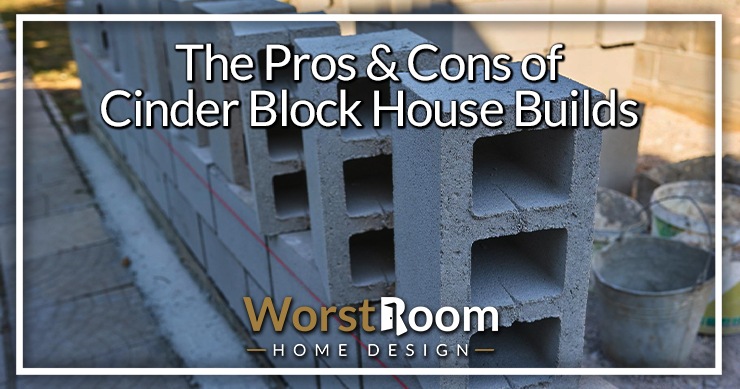
Cinder block homes are slowly gaining momentum on the American landscape. A cinder block house is more durable, energy-efficient, and cost-effective, in the opinion of some builders.
While builders in North America typically construct homes from wood, European, Central, and South American homeowners might have influenced this building trend. Of course, there are always two sides to the story. Let's break down why one might be better than the other.
Benefits of Cinder Block Construction
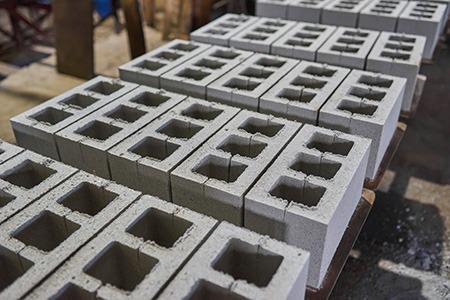
Cinder blocks aren't new technology. In North America, many homes sit on cinder block foundations. Cinder blocks are a concrete mixture shaped to resemble a hollow block. They can also contain eco-friendly components like clay, slag, hemp, straw, coal cinder, or ash.
Since cinder blocks contain materials other than concrete alone, they're much lighter. However, they're still strong enough to carry the wood frame of a house.
Cinder blocks, called Concrete Masonry Units (CMU) by pros, are excellent building materials that have a long life span. They don't require any maintenance and are fireproof. Another way cinder blocks help to reduce cost is that they're relatively easy to build with and cost-efficient.
Although you can make your own cinder blocks, it's wiser and cheaper to have them made and delivered to the building site. Saving time is worth the price. Unless you're an expert in making them, the integrity of the cinder block matters. Poor-quality blocks will crumble and potentially shift.
Many builders also like cinder blocks for their versatility. Leftover blocks are a great way to build a gazebo, a fire pit, a fireplace, frame flower beds, retaining walls, and any other types of walls you may need around your property.
The Positive & Negative Aspects of a Cinder Block House
Although cinder block homes are becoming more popular, many people distrust the method because it's not a building material they understand. Cinder block homes have a unique appearance, and they also have pros and cons. Here's what you should know.
The Pros of a Cinder Block Building
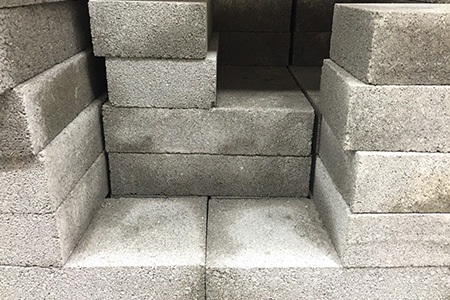
Every building material has a long list of benefits and also detractors. Cinder block houses are no different. To start on the positive, we'll talk advantages of cinder block construction.
Durability
Cinder block homes withstand the test of time and the elements. They are naturally fire-resistant, and even hurricanes can't blow the house down. Building cinder block homes is best left to experts since it's an acquired skill.
Cinder block homes need additional steel rod enforcement, especially for taller buildings. Re-inforcing with rebar or steel allows the house to flex through frost heaving and even severe wind conditions.
Maintenance
Literally, there isn't any. If the cinder blocks crack through some extenuating circumstances, fill the crevices with a concrete mixture. Cinder block homes usually have cladding with a concrete finish, stucco (yes, you can stucco over brick), vinyl or Hardie board (similar), or a stone veneer finish.
Less Expensive to Build
Since wood prices recently rose drastically, a concrete block house might cost less to build depending on where you live. The cost of building blocks is relative, and it's also a quick process, providing skilled labor is available. Although wood prices have fallen again, cinder blocking is still an affordable option with proven longevity.
Pest Retardant
Although rodents can get in anywhere, they won't chew away on the cinder block walls. Additionally, termites don't like them either.
Temperature & Insulating Control
Cinder blocks provide an insulation factor that wood alone cannot. Therefore, cinder block homes help with reducing utility costs and are naturally soundproof.
The Cons of a Cinder Block Home
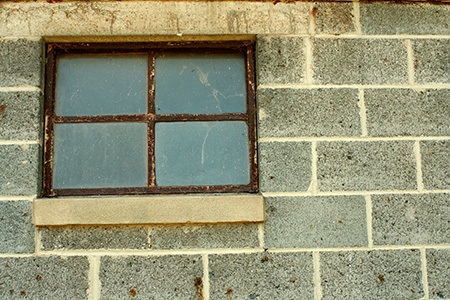
Cinder block homes aren't perfect and have a few disadvantages.
Appearance
Only some people appreciate a cinder block home’s stark and rigid appeal during construction. Cinder block homes look like warehouses until the finish is complete. Cladding choices are finishing materials like stucco or wood. Although cinder block homes look hard, they blend well into their environment in many countries with a splash of color and unique design.
Electrical & Plumbing
Some naysayers say cinder block houses are difficult to outfit with plumbing and electrical lines. That is not true if you understand the building method. In Europe, the U.K., and Central and South America, builders never give that concern any daylight. Yes, it helps if you devise a plan, use the appropriate tools, and make these lines fit within their designated space.
Insulation Value
Hollow cinder blocks will need additional material to make them thermally efficient for a cinder block building. One method is to fill the interior of the block with slag. Another is to strap fiberboard-like styrofoam insulation outside the wall and finish with coating.
Height Restrictions
Unfilled hollow blocks are restrictive to height. To build higher, you must fill the blocks and use reinforcing steel to attain the height and meet building code restrictions.
Uniformity
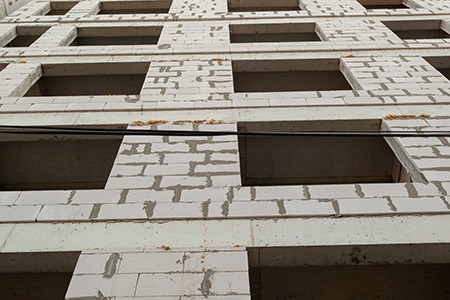
Some builders feel that cinder blocks could be more precise. Each block is slightly different in size, which can add up over a distance. It's not a unique problem; skilled cinder block builders have devised methods to combat it long ago. Seldom do cinder block construction workers grind and file the uneven surface.
It's fixed with parging. Parging is a building finish that uses mortar or plaster to achieve a finished look. It hides imperfections and prepares wall surfaces for color or tile. It's how a cinder block house becomes less, shall we say... plain and ugly.
Unskilled Labor
The real con of cinder blocks is that you need someone that has experience laying cinder blocks. Using inexperienced cinder block builders is a catastrophe waiting to happen. Cinder blocks are less forgiving than wood.
Cinder block homes are still in their infancy in America though many warehouses or industrial complexes use cinder blocks. Also, since cinder blocks are durable, they're an excellent though not perfect, building material solution.
Types of Cinder Blocks
It's not a "one block fits all" category. Here are the basics of each of these concrete block types.
Hollow Cinder Blocks
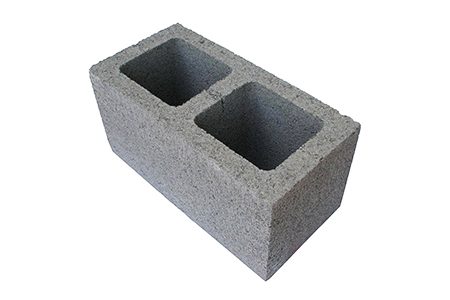
Hollow blocks are the most prolific type of block on building sites for foundations, columns, garages, and fences. They're known for their strength.
Decor Cinder Blocks
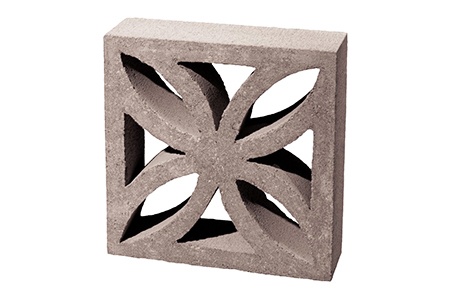
Not very common, but add a decorative appeal. They're finished with texture on one or both sides to create a dramatic effect. They absorb moisture, so they require a waterproof sealant.
Partitioning Cinder Blocks
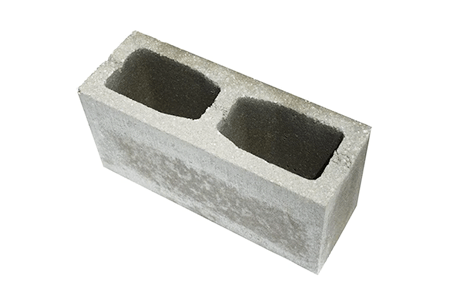
These lightweight but sturdy blocks are used in the trade to form rooms and hallways and divide spaces into sections. They also distribute the weight of a house. Skilled tradespeople can build partition walls quickly.
Foundation Cinder Blocks
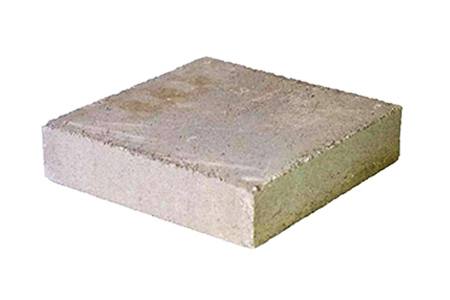
Foundations are the backbone of a house and carry the weight on durable, stacked foundation blocks. These cinder blocks themselves weigh more than ones used for walls, too. The first row of blocks sits on the footing, and each block row is joined with a cement mixture and reinforced with vertical rebars for strength.
Ragged & Chipped Cinder Blocks
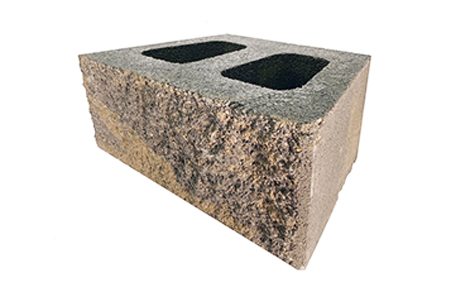
Not very common yet, ragged or chipped blocks have the decorative look of crushed bricks. Ideal for fence walls and retaining walls. This ragged surface is only on the visible exterior sides and simply provides a visual texture to improve their appearance.
FAQs Concerning Building a House With Cinder Blocks
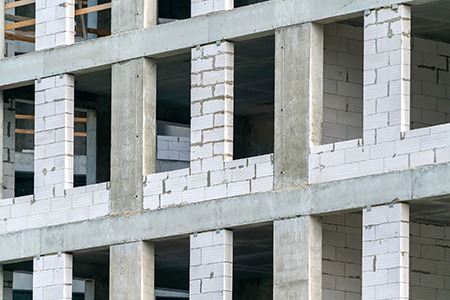
You might still have questions about cinder blocks. For that reason, we’ve compiled a list of frequently asked questions and their answers.
Do Cinder Block Houses Cost Less Than Wood Framing?
Wood prices have reached an all-time high recently. Building with concrete can cost less, but it all depends on several factors like your building contractors' experience, your location, and the style of house you're building. The actual saving of a cinder block house is that it requires less maintenance and it's fireproof.
How Long Do Cinder Block Homes Last?
Unless something drastic like a landslide occurs, a cinder block house can last well over a hundred years or longer. Remember, homes in Europe built from brick are still standing after several hundred years. It will last if the building is reinforced and waterproofed (in specific locations).
How to Keep a Cinder Block Home Warm?
Technology has come a long way. There are several ingenious ways of insulating your cinder block home. Investing in a spray-on exterior compound that acts as a waterproof barrier and provides an insulation factor is best.
Another way is to strap the interior with a styrofoam board and then use plaster. Also, install air-tight, energy-efficient windows and doors and face the house to capture sunlight. Cladding the house in vinyl, wood, or other insulating material helps.
Should You Buy a Cinder Block House?
Buying a house is often about location and that intrinsic feeling that makes us feel at home. Cinder block homes are just as good or better than traditional wood homes. Both wood and cinder block homes serve their purpose. Where you live might impact your choice. It's also a style choice.
A Cinder Block Home Has Much to Boast
Many of the negatives of building a house with cinder blocks can be overcome with a little planning and aren't really an issue depending on the typical weather of where you live. On the flip side, the most obvious benefits weigh so heavily that you have to give them serious consideration. If you're planning to build soon, think about a cinder block house carefully. It might be right up your alley.



